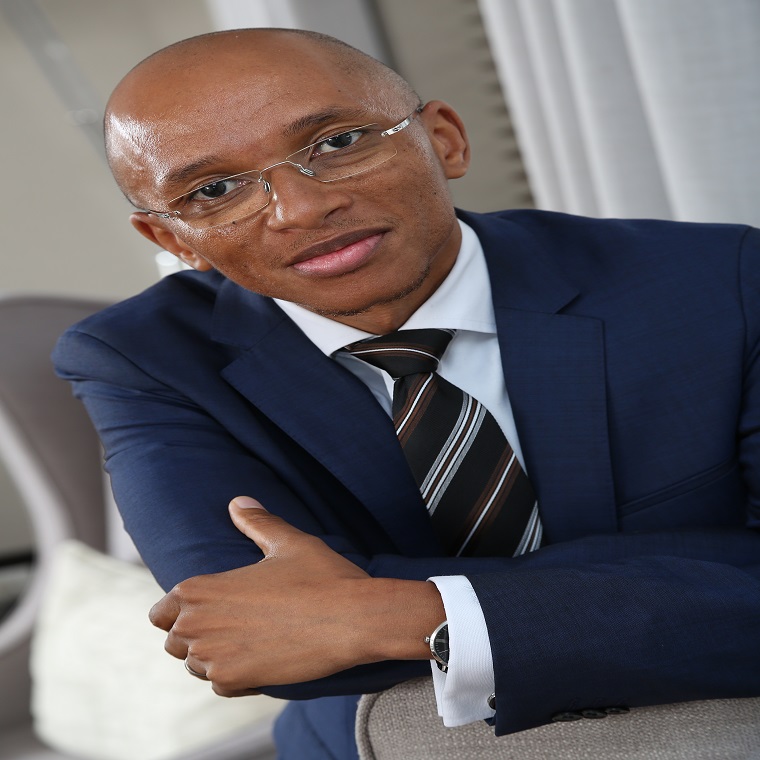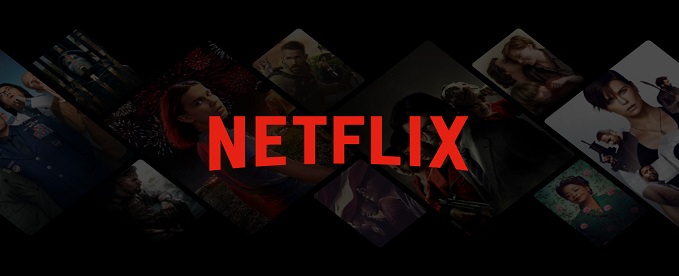Broadcasting
Here’s How We Need to Think About Digital Skills in 2024

By Zuko Mdwaba, Salesforce Area VP / Africa Executive
It’s no secret that, in addition to a persistent youth unemployment crisis, Nigeria has an acute skills shortage. Some might view those two things as a paradox. In reality, however, they feed into each other. Without the requisite skills, many companies struggle to scale and grow, which would ease the unemployment crisis.

Photography for SAS in April 2017 by Jeremy Glyn.
There are few sectors where this skills shortage is felt more acutely than in the digital arena. In fact, a report released earlier this year found that more than 100 million young Nigerians lack the digital skills needed to take up good job opportunities
A good example of how big the shortage is can be seen in the software development space. At present, Nigeria is home to just 83 000 software developers. By contrast, the US state of California is home to more than 630 000 developers. Its population is just 18% as big as Nigeria’s. Of course, developers are just one slice of the digital skills pie. Other in-demand digital skills in Nigeria include cybersecurity, data analysis, and digital marketing.
But how can the country ensure that it builds those much-needed skills in a way that’s impactful and sustainable in the long term? One important step is to reframe how we think about digital skills development. It’s an approach which, among other things, means that the country will be better prepared for new technologies rather than reacting to them and which centres the whole person rather than focusing solely on a specific hard skill.
Embracing new tech
When it comes to embracing new technologies rather than fearing them, it’s hard to think of a more powerful example than artificial intelligence (AI). At the extreme ends of AI discourse, there are accelerationists, who believe that the rapid development of technologies in the field will benefit humanity and doomers, who take a far more pessimistic view on the future of AI and its implications for humanity.
In truth, much probably depends on how we choose to use the technology. For now, however, it’s important to remember that AI can be a significant enabler for digital workers and even create jobs. We know this because it’s already happening. In the programming space, for example, AI tools have helped developers program faster, be more productive, and even enjoy enhanced job satisfaction.
The same will likely be true across a broad spectrum of industries but only if people have the necessary skills to utilise AI effectively. As such, workers and businesses alike need to stop viewing AI as a threat, start thinking about how to use it to their advantage and build up their skills accordingly.
Focusing on the whole person
Getting people to the point where they can take this forward-looking approach to skills development is, however, not as simple as telling them to do so. And even if someone already has this attitude, you can’t just provide them with that specific skill. You also have to develop the whole person.
That means ensuring that skills development always happens within a relevant context. Within this context, people are equipped with more than technical capability but also given the support and resources to flourish in the environment where the acquired skills will be applied. Among the many benefits of this approach is that it means people will likely pick up future skills faster than they otherwise would have.
An important whole-person approach is the promotion of life-long learning. Here again, organisations cannot simply say they support life-long learning. They have to demonstrate that they do too. That means creating a supportive environment that encourages lifelong learning and learning agility as the foundation on which effective skills training and talent development can happen.
Understanding that skills development is a collective effort
Finally, it’s important to remember that skills development cannot be truly effective if it happens in isolation. Instead, organisations across all sectors must remember that they exist in an ecosystem and that real, transformative skills development can only happen when all the players in that ecosystem are pulling in the same direction.
It’s an approach which we’re confident will create tens of thousands of new jobs and generate billions of new dollars in business revenue. And the more players from across the industry who get involved the bigger the impact will be.
Act now or fall behind
Given the incredible need for skills development in Nigeria, along with the rapid pace of technological advancement, it’s clear that urgent action is needed. And if it’s not taken, the country risks falling behind and becoming uncompetitive. But it should also be clear that we need to be very careful about how we think about skills development in 2024. Ultimately, the idea isn’t to patch holes but to build a cohort of workers ready to face the future with full confidence.
Broadcasting
NCC Warns DJs: Playing Music Without License Could Lead to 5-Year Jail Term

Nigerian Copyright Commission (NCC) has warned disc jockeys (DJs) against publicly playing music without proper authorization or a valid license.

NAN reports that John Asein, NCC director-general, gave the warning in an advisory issued in Abuja.
He said the commission’s attention had been drawn to the growing practice of DJs playing music in public spaces without obtaining copyright licences from their approved collective management organisations (CMOs).
Asein said under sections 9 and 12 of the Copyright Act, 2022, only the owner of copyright in a musical work or sound recording has the exclusive right to reproduce, perform, or communicate it to the public.
The NCC threatened to prosecute defaulters in a case that could lead to a N1 million fine or a 5-year jail term upon conviction.
“Engaging in any of these acts without the owner’s authorisation constitutes an infringement under the Act,” he said.
“Such infringement may constitute a civil wrong or a criminal offence under section 44 (7), punishable upon conviction by a fine of not less than N1 million or imprisonment for a term of not less than five years or to both.”
Asein advised DJs to obtain the necessary licences and pay royalties to the approved CMO before performing music publicly.
The NCC director-general added that the commission will arrest and prosecute anyone found violating the law.
“For the avoidance of doubt, the approved CMO for musical works and sound recordings in Nigeria is the Musical Copyright Society, Nigeria (MCSN),” he said.
“The Commission is aware that the Disc Jockey’s Association of Nigeria (DJAN), as the umbrella body representing DJs in Nigeria, has entered into a Memorandum of Understanding with MCSN.
“Under the arrangement, DJAN is authorised to work with MCSN to facilitate the payment of royalties by DJs nationwide, based on the tariff that DJAN had negotiated with MCSN.”
Broadcasting
Netflix Hikes Subscription Fees Again in Nigeria over “Market Conditions”

Netflix has increased its subscription fees in Nigeria for the third time since 2024, with the Premium Plan rising by 21.43%, from ₦7,000 to ₦8,500 per month.

This marks the streaming platform’s first price adjustment in 2025.
Other subscription tiers have also been affected.
The Standard Plan now costs ₦6,500, up from ₦5,500—a hike of 18.18%.
The Basic Plan has increased from ₦3,500 to ₦4,000, while the Mobile Plan moved from ₦2,200 to ₦2,500, reflecting increases of 14.29% and 13.64% respectively.
The latest adjustment aligns with Netflix’s broader global pricing strategy, which the company has linked to its ongoing investment in content and platform development. In a previous communication to investors, Netflix stated, “As we invest in and improve Netflix, we’ll occasionally ask our members to pay a little extra to reflect those improvements. Which in turn helps drive the positive flywheel of additional investment to further improve and grow our service.”
While the company did not explicitly cite inflation in its most recent update, its website indicates that local economic factors influence its pricing structure.
“Price changes are made to respond to local market changes, such as changes to local taxes or inflation,” the statement read.
The move mirrors similar pricing shifts among other major digital and entertainment services in Nigeria.
Companies including Google, DSTV, GOtv, and Microsoft have also raised subscription rates, attributing their decisions to continued inflationary pressures and a weakening naira.
Broadcasting
NBC, Nigcomsat Launch Satellite Plan to Transform Broadcasting

National Broadcasting Commission (NBC) and Nigerian Communications Satellite Limited (NIGCOMSAT) have jointly introduced “The Big Picture’, a flagship initiative under Nigeria’s renewed Digital Switchover (DSO) project.

Under the project, Nigerian households will for the first time, gain access to high-quality digital broadcasts via affordable satellite dishes, hybrid devices, and internet-enabled set-top boxes.
Backed by President Bola Ahmed Tinubu and in line with his Renewed Hope Agenda, this strategic shift marks a significant step toward transforming Nigeria’s broadcasting landscape by leveraging the country’s sovereign satellite infrastructure.
At the heart of the initiative is NigComSat-1R, Nigeria’s only communications satellite in orbit, which will play a critical role in delivering Direct-to-Home (DTH) broadcasts across the entire Nigerian territory.
This satellite-first approach eliminates the traditional dependence on terrestrial transmission towers, accelerating the nationwide rollout of digital broadcasting by over 65%.
It also offers a scalable, cost-effective, and future-ready model for expanding digital access and promoting national storytelling.
Key figures, including: Charles Ebuebu, director-general, NBC; and Jane Nkechi Egerton-Idehen, managing director, Nigcomsat, have welcomed this forward-thinking strategy, emphasising its importance in maximising the use of national satellite assets and ensuring inclusive access to digital content.
An estimated 10 million homes equipped with DVB-S2-compatible televisions or decoders will have immediate access to free-to-air channels, while others will benefit from next-generation hybrid devices that combine satellite feeds with online streaming capabilities.
These new branded devices are designed with the country’s youth-dominated demographic in mind over 60% of the population is under the age of 25.
They will feature pre-installed apps, voice search functionality, parental controls, and seamless integration with NigComSat’s Electronic Programme Guide (EPG), offering an intuitive and engaging user experience.
In a data-driven upgrade to Nigeria’s broadcasting ecosystem, NBC is also partnering with global analytics firm GARB to introduce real-time audience measurement technology.
This will enable broadcasters, advertisers and content creators to analyse viewership trends across regions and devices, helping to tailor content more effectively and drive higher audience engagement. The introduction of this system is expected to boost advertising revenue by as much as 300% by 2026.
The success of “The Big Picture” will rely on robust collaboration between public and private stakeholders.
The Broadcasting Organisation of Nigeria (BON) and other content partners are expected to supply 60% of programming for the new 120-channel platform, using both original and repurposed content.
Meanwhile, local manufacturers will contribute by producing around 5 million compliant devices annually, a move projected to create over 20,000 jobs in assembly plants nationwide.

 Telecom3 days ago
Telecom3 days agoTelcos Threaten to Disconnect Banks over Misinformation on New USSD Charges

 Telecom3 days ago
Telecom3 days agoMTN Nigeria Plans N900Bn in Service Upgrade

 General News3 days ago
General News3 days agoJumia Marks 13 Years of E-Commerce Innovation and Impact in Nigeria

 Telecom3 days ago
Telecom3 days agoTelecom Regulators in Africa Chart New Course for a Data-driven Future

 Broadcasting3 days ago
Broadcasting3 days agoNetflix Hikes Subscription Fees Again in Nigeria over “Market Conditions”

 News3 days ago
News3 days agoAbbas Jega, Ex-AMCON ED, Testifies, Says Arik Never Cooperated With AMCON

 Broadcasting3 days ago
Broadcasting3 days agoNBC, Nigcomsat Launch Satellite Plan to Transform Broadcasting

 E-Financial3 days ago
E-Financial3 days agoNDIC Calls for Inputs to IADI Core Principles for Effective Deposit Insurance




























